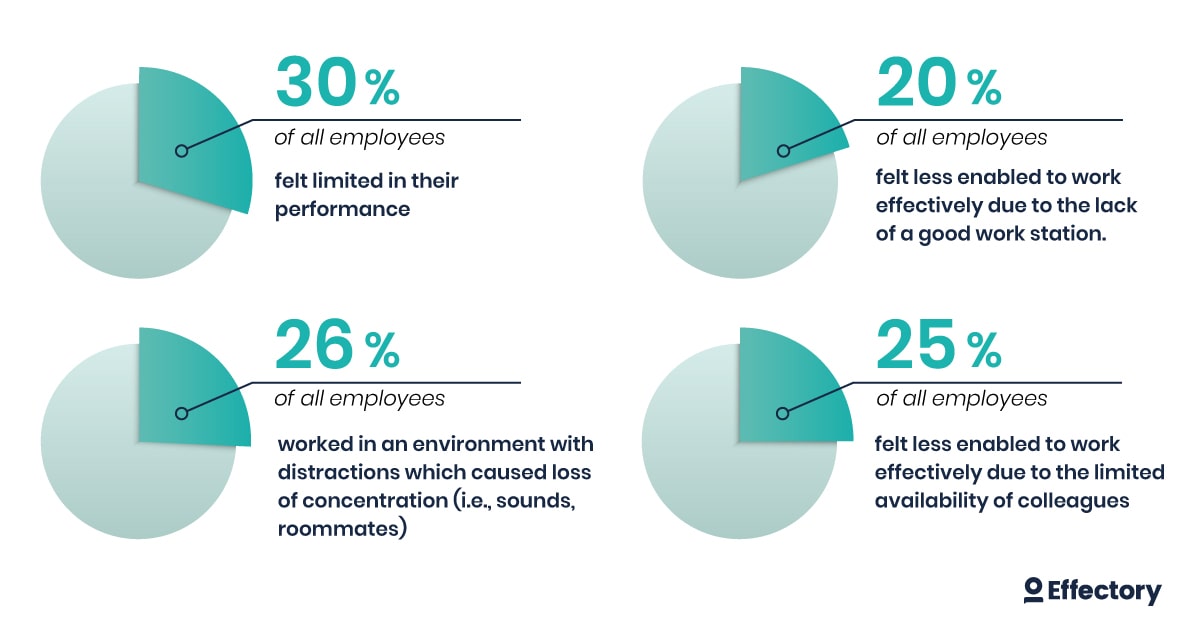Until recently, organizations were primarily focused on attracting the right talent — a process made more difficult by unprecedented growth and significant labor shortages. Now we are living in an era where mass redundancies loom large and organizations are taking drastic cost-cutting measures.
Why is it important to listen your employees during a crisis?

Companies are mainly focused on survival. They need to continue to serve their customers with reduced resources, while their employees are losing faith in the future of their organization — and we probably haven’t seen the worst of it yet. Who can even start to think about the future in this kind of situation?
Lessons in management from previous crisis situations
In this type of scenario, there’s a huge temptation to cut your coat according to your cloth, freeze budgets, halt onboarding programs and start reorganizing — or simply bury your head in the sand. However, previous crisis scenarios have demonstrated that businesses that essentially panic and rush into wholesale redundancies often need years to recover from the lack of trust generated as a result. Employees do not forget how the organization behaved during a crisis in a hurry.
Come out of the recession 10% better off than your competitors
The last thing you want to do right now is make rash decisions. You will gain much more by thinking in a countercyclical manner and dedicating yourself to a long-term strategy. This long-term strategy must take into account the long road that lies ahead of us, during which you will need the full support of your employees. The strategy must fully draw upon the reason why your organization exists if it is to help maintain everyone’s trust in you. And it must drive your company to go that extra step further. If you can come out of the recession 10% better off than your competitors, you will be able to increase your market share and continue to reap the benefits for years to come.
Checklist: 5 tips for Reboarding Employees
Are your employees still working at home or at the office again? Or a combination of both? We are happy to share practical tips for reboarding employees.
DownloadMaximum alignment
Looking ahead to when the current crisis has passed will have a powerful motivating effect on your employees during the here and now. Your employees will know that the organization really stands for something and that through their work they’re making a contribution to society. They will also be less concerned about the future because they will be busy innovating. Ultimately, alignment is key. It is important to make sure that everyone is pouring their energy into the same thing and that all your employees are working together to defeat the same enemy: the current crisis.
Sixty percent of employees are at risk of burnout
However, many organizations are not currently exploiting the full potential of their employees. They need their employees more than ever, but they face a number of problems. For example, the beginning of the COVID-19 crisis was particularly challenging for many employees. If you suddenly have to work and relax in the same space, it can be difficult to find a good balance between the two. Effectory Pulse surveys of 123,000 employees across Europe have revealed that a mere 40% of employees have managed to maintain a good work-life balance in recent months. The remaining 60% are more likely to experience burnout.
The same data analysis has revealed that 33% of employees are not able to work effectively. This is either as result of their living situation, lacking the right resources or difficulty collaborating with colleagues.

The business case for engagement
What’s more, employees all around the world are rapidly losing their engagement and sense of connection to their organizations. This is not particularly surprising during a crisis situation — many people are now primarily concerned with meeting their basic needs. In addition, reduced contact with colleagues and customers has completely changed the face of some jobs. This creates that risk that your employees will begin to look for other opportunities. You should also pay careful attention to workload — our Pulse surveys have shown that workloads are distributed more unevenly than ever. Some people have been working at peak capacity for months, while others have a much lower workload than normal.
Organizations have a lot to gain by distributing the workload more evenly. This can be achieved not only by talking to employees who aren’t performing so well, but also by setting clear goals for both teams and individuals. In order to maintain that sense of engagement, it can be useful to set your organization a joint goal for after the crisis and start working towards it now. If you do it well, pride in the organization will increase. During these difficult times it could make the difference between going under and getting out of the starting blocks in the strongest position.
Keep an eye on what’s going on
It’s essential that you shore up your organization’s mission and keep driving it forward. In addition, communicate effectively and frankly with your employees, and listen to them. Many organizations are currently tearing their hair out. As a result, they are completely blind to how their employees are doing. They are busy with crisis management in other areas and aren’t aware of what’s going on, whether employees are able to be productive and what they need to be able to work effectively. The coming months will be crucial to the viability of your organization in the future. Listening to your employees’ experiences, wishes and ideas now will help you to keep going through the coming months, affirm your organization’s reason for being and continue to strengthen your long-term position.
Book a free demo. See our solutions in action.
Effectory is Europe’s Leading provider of Employee Listening Solutions. Schedule a product demo and discover how to enhance your employees’ engagement.
Demo request
